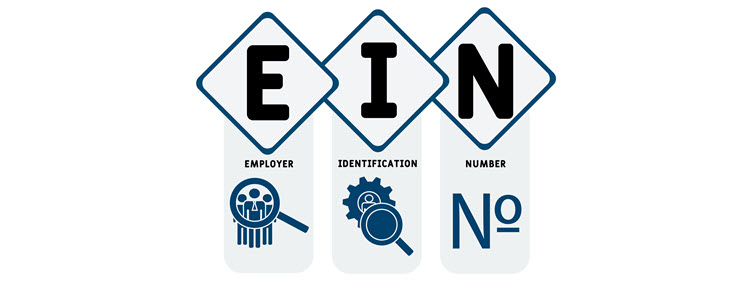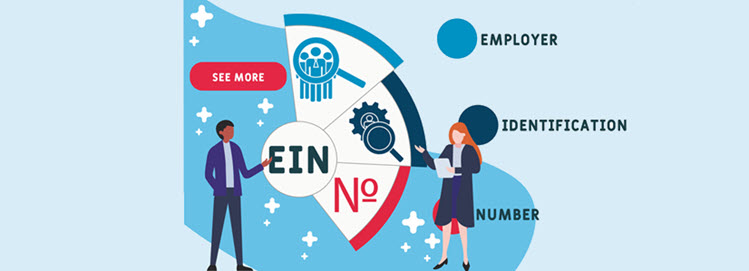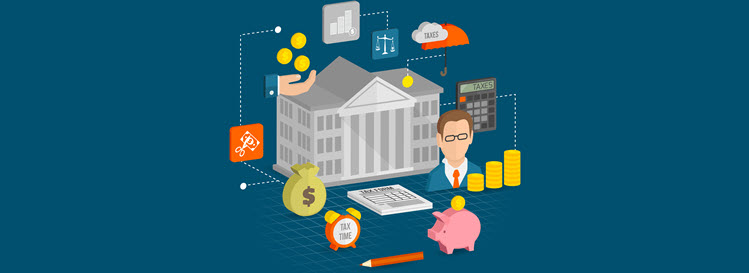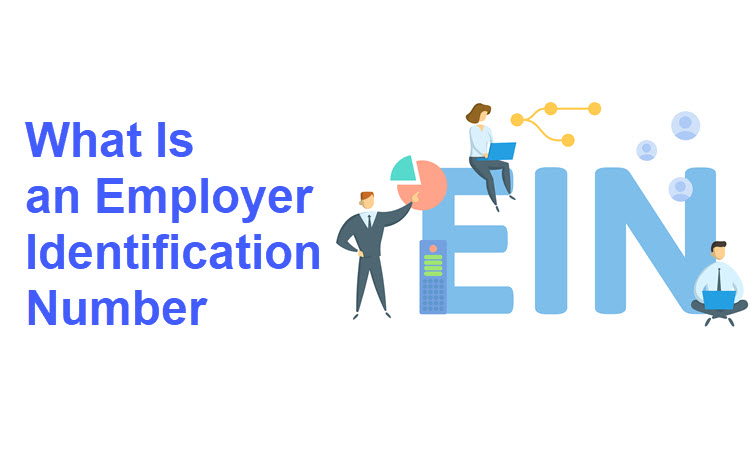All U.S. business entities need to file income tax returns. To facilitate collecting taxes from businesses located in the United States, the IRS requires most to obtain a tax identification number called Employer Identification Number (EIN).
This article explains what an EIN is, the benefits it provides, what types of businesses need this number, and how to get it.
What Is an EIN Number?

EIN stands for Employer Identification Number. It is a nine-digit number that helps the Internal Revenue Service (IRS) identify businesses for tax-paying purposes. Most business entities need an EIN to operate.
EIN is also called a Federal Employer Identification Number (FEIN) or a Federal Tax Identification Number (TIN).
Note: Any business that wants to process payments online needs to submit their EIN as part of their application.
Why Is EIN Important?

Having an EIN provides numerous benefits. Even businesses that are not required to have it often register an EIN with the IRS because it facilitates obtaining a merchant account and applying for business loans.
An EIN helps with or is required for the following business processes:
Filing Taxes
Most businesses need an EIN to file taxes. The IRS tracks business tax payments via EINs.
Banking and Finance
Most banks require an EIN to open a business account. Separating a business from a personal account helps build business credit, obtain business loans, and open a business credit card. The number is also necessary for opening a merchant account.
Note: Obtaining a high-risk merchant account is particularly difficult. CCBill has more than two decades of experience in payment processing and we can help any business start processing payments online.
Hiring Employees
If you have hired employees or are planning to, you need an EIN to set up payroll and register for your state’s employer taxes.
Preventing Identity Theft
Unlike a Social Security Number (SSN), an EIN is a public, freely distributed number. Using an EIN for your bank account and business finances decreases the chance of identity theft and fraud.
Providing a Corporate Shield
An EIN allows business owners to separate their business from their personal finances, protecting them from personal liability for business-related debts.
That way, your personal credit score is not affected by your business’s credit rating and vice versa.
Establishing Credibility and Professionalism
A business entity that is separate from personal finances establishes credibility and professionalism with clients, business partners, and financial institutions.
Paying Self-Employed Retirement Plans
Self-employed individuals who have a Keogh or Solo 401(k) plan need an EIN to pay federal taxes on those retirement plans.
Filing for Individual Bankruptcy
Individuals need an EIN to file for bankruptcy because the bankruptcy estate is a taxable entity.
Who Needs an EIN?

Most business organizations registered in the United States need an EIN. They include:
- Corporations. If you run a corporation or your company is taxed as an S corporation, you need an EIN for tax identification purposes.
- Limited Liability Companies (LLCs). Multi-member LLCs need an EIN to file partnership returns and provide K-1s to LLC members. Single-member LLCs also need an EIN if they have hired employees or are planning to in order to set up payroll and pay state employer taxes.
- Partnerships. Businesses that share two or more partners registered as a partnership need an EIN for tax identification purposes. Partners claim the profits and expenses gained through their partnership on their individual tax returns, but they still need to file a separate tax return as a partnership in order to show that the funds have been allocated to the partners.
- Trusts. Irrevocable trusts are viewed as separate legal entities when they are established or when a grantor revocable trust becomes irrevocable after the grantor’s death. They require an EIN for tax identification purposes.
- Government Agencies. Government agencies don’t pay federal income taxes, but they must file tax reports like other business entities. Therefore, they are required to have an EIN.
- Businesses with Employee Benefit Plans. If your business sponsors an employee benefits plan such as health, retirement, profit-sharing, or other employer-sponsored benefits plan, you need an EIN to file related reports with the IRS.
- Estates of Deceased Persons. After someone dies, the assets they leave behind, such as saving accounts, stocks, bonds, mutual funds, and rental property, may generate income. If the estate’s gross annual income exceeds $600, the appointed fiduciary needs an EIN to file an estate income tax return.
- Household Employers. If you hire a household worker, you need to report payroll tax withholding for them, and you need to obtain an EIN as a household employer.
- Charities, Non-Profits, and Tax-Exempt Organizations. All organizations applying for tax-exempt status need an EIN.
Note: Learn about recurring donations and why they are good for non-profits.
- Real Estate Mortgage Investment Conduits (REMICs). The IRS requires REMICs to file annual reports on the income, gains, losses, and deductions from running the organization. They need an EIN to file the reports.
- Farms and Farmers’ Cooperatives. Farmer’s cooperatives need an EIN to file tax returns. Farms need an EIN only if they have employees, sponsor retirement plans, or need to open a business bank account in the farm’s name.
Who Does Not Need An EIN?
Business entities that don’t need an EIN include:
- Sole Proprietorships without Employees. Sole proprietorships that don’t have employees and don’t file any excise or retirement plan tax returns don’t need an EIN. They use their SSN to file business-related gains and losses on their individual tax report.
- Single-Member LLCs without Employees. Single-member LLCs without employees that don’t pay excise taxes and pension plans file their tax returns like sole proprietorships using the LLC owner’s SSN.
How to Get an EIN?

The IRS assigns EINs to businesses for free. Business entities can apply in three ways:
- Online via IRS EIN Assistant. This is the quickest way to obtain an EIN. Answer the questions related to your business, such as where your business was registered, your business’s legal name, etc. As soon as the EIN assistant validates the answers, you will receive an EIN. The EIN Assistant is available Monday to Friday from 7 a.m. to 10 p.m. Eastern Standard Time.
- By fax. Download, fill out, and fax the SS-4 form to (855) 641-6935. The IRS will fax the EIN within four days.
- By mail. Download, fill out, and send the SS-4 form to the IRS, Attn: EIN Operation, Cincinnati, OH 45999. The waiting period for obtaining an EIN by mail is four weeks.
- International EIN Applicants. International applicants can call the U.S. IRS at 267-941-1099 Monday to Friday from 6 a.m. to 11 p.m. Eastern Standard Time. They must be prepared to answer the questions on the SS-4 form.
Conclusion
EINs are not required for all business entities, but these free tax identification numbers facilitate numerous business procedures. If you consider hiring employees in the future, applying for a business loan, or building business credibility, it’s in your best interest to operate with an EIN.
